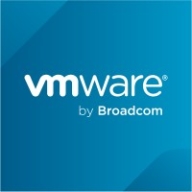

Amazon AWS and Pivotal Cloud Foundry are competing cloud platforms. AWS seems to have the upper hand in terms of scalability and diverse service offerings.
Features: AWS provides services like RDS, Lambda, and IAM, known for efficiency, scalability, and strong security, while Pivotal Cloud Foundry is favored for reliable automated deployments, robust CI/CD support, and seamless integration with Spring Boot-based platforms, offering an easy-to-use developer environment.
Room for Improvement: AWS users highlight the need for cost simplification and improved service management support. Pivotal Cloud Foundry could enhance its platform by expanding features and integrating better with public cloud services like Amazon or Google, tapping into hybrid cloud potential.
Ease of Deployment and Customer Service: AWS is praised for its quick setup and scalable public cloud infrastructure, with strong technical support. Pivotal Cloud Foundry offers reliable deployment processes and is well-regarded for its stability in private cloud environments.
Pricing and ROI: AWS’s pay-as-you-go pricing offers flexibility but can be complex, whereas Pivotal Cloud Foundry, though pricier, provides justified pricing through deployment efficiency and developer ease. AWS is positively viewed for ROI due to its scalability.
| Product | Market Share (%) |
|---|---|
| Amazon AWS | 13.1% |
| Pivotal Cloud Foundry | 7.2% |
| Other | 79.7% |

| Company Size | Count |
|---|---|
| Small Business | 131 |
| Midsize Enterprise | 48 |
| Large Enterprise | 113 |
| Company Size | Count |
|---|---|
| Small Business | 5 |
| Large Enterprise | 11 |
Amazon Web Services (AWS) is an adopted cloud platform that offers more than 200 fully featured services from data centers located across the globe. This is a scalable, low-cost infrastructure platform in the cloud that is utilized by thousands of businesses of different sizes around the world. The product offers a wide variety of solutions for its customers, which allows them to launch applications regardless of their industry.
The most common use cases for AWS are:
Amazon AWS supports a global cloud infrastructure with AWS Region and Availability Zone models, which contribute to the high availability of enterprise applications running on the solution. Amazon AWS has an extensive array of products that serve different purposes, including:
The products and services that Amazon AWS delivers to these sectors provide a large computing capacity which is quicker and cheaper compared to building a physical server farm. Among the most popular services are Amazon Elastic Compute Cloud, also known as "EC2," and Amazon Simple Storage Service, also known as "S3."
Amazon AWS Features
The wide array of products that Amazon AWS offers consist of different functions that utilize cloud computing across different sectors. The features of this solution can be categorized in the following ways:
Amazon AWS Benefits
This product delivers various benefits across all industries that utilize its services. The greatest advantages of using Amazon AWS include:
Reviews from Real Users
Greg G., a chief executive officer at a tech services company, ranks Amazon AWS highly, as he states that the solution is flexible, scales well, and offers good stability.
A technology manager technology at a computer software company values Amazon AWS because it is extremely cost-efficient, easy to upgrade and expand storage with greatly improved interfaces.
Pivotal Cloud Foundry (PCF) is the leading enterprise PaaS, powered by Cloud Foundry. PCF provides a cloud-native application platform that allows you to continuously deliver any app to every major private and public cloud with a single platform. PCF is proven to accelerate feature delivery with higher developer productivity and a 200:1 developer to operator ratio. PCF's built-in security and self-healing capabilities reduce risk in your app portfolio while maintaining high-availability at scale to keep customer facing systems online even in the most challenging circumstances. pivotal.io
We monitor all PaaS Clouds reviews to prevent fraudulent reviews and keep review quality high. We do not post reviews by company employees or direct competitors. We validate each review for authenticity via cross-reference with LinkedIn, and personal follow-up with the reviewer when necessary.